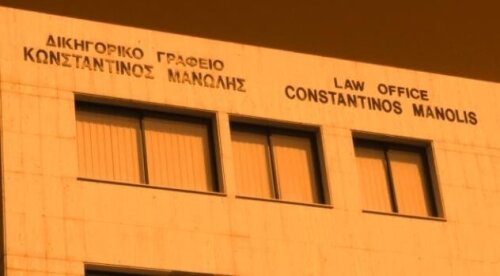Best Restructuring & Insolvency Lawyers in Paphos
Share your needs with us, get contacted by law firms.
Free. Takes 2 min.
List of the best lawyers in Paphos, Cyprus
About Restructuring & Insolvency Law in Paphos, Cyprus
Restructuring and insolvency law in Paphos, Cyprus focuses on the legal processes involving financially distressed individuals, sole traders, and companies. These laws provide a framework for handling unpaid debts, negotiating with creditors, and either reorganizing or winding up a business. The main goal is to protect creditors’ rights while also considering the interests of debtors, allowing for fair resolutions and, where possible, the survival of viable businesses. In Paphos, as across Cyprus, insolvency matters are primarily governed by national legislation but local practice and procedure are significant for those seeking legal support in this area.
Why You May Need a Lawyer
Navigating restructuring and insolvency proceedings can be complicated, with serious financial and legal implications. You may need a lawyer if:
- Your business is struggling to repay debts and creditors are taking legal action.
- You are facing personal insolvency and risk losing your assets.
- You need to understand your rights and obligations as a creditor.
- You wish to restructure debt to avoid insolvency and continue commercial operations.
- A company you work with has become insolvent and you are unsure how this affects you as an employee, supplier, or contractor.
- You want to negotiate payment terms with creditors or devise a rescue plan.
- There are cross-border aspects, such as assets or creditors outside Cyprus.
- You suspect fraudulent actions linked to insolvency and require legal intervention.
Local Laws Overview
The restructuring and insolvency landscape in Paphos is mainly shaped by the following key laws:
- Companies Law (Cap. 113): This statute outlines company insolvency procedures, including liquidation (both voluntary and compulsory) and the appointment of liquidators.
- Bankruptcy Law (Cap. 5): This law provides for the bankruptcy of individuals, setting out processes for petitions, asset distribution, and discharge from bankruptcy.
- Examinership: Cyprus has introduced examinership as a temporary protection mechanism for companies facing insolvency, allowing them time to restructure debts under court supervision.
- Receivership: Secured creditors can appoint a receiver to realize secured assets when debts are unpaid.
- Relevant EU Regulations: For cases with cross-border elements within the EU, Cyprus courts apply European regulations concerning insolvency proceedings.
Local courts in Paphos handle applications related to these processes. The involvement of qualified insolvency practitioners is mandated, and specific rules affect timelines, notice requirements, and creditor priorities.
Frequently Asked Questions
What is the difference between bankruptcy and insolvency in Cyprus?
Insolvency is a general term for the inability to pay debts as they fall due. Bankruptcy refers specifically to the legal process declared against individuals who cannot pay their debts, while companies are subject to liquidation or other insolvency proceedings.
How do I know if my business is insolvent?
Your business may be insolvent if it cannot pay debts when due or if liabilities exceed assets. A lawyer or accountant can help assess your business’s financial position.
What are the first steps if creditors are threatening legal action?
You should seek legal advice immediately to understand your options, which may include negotiating a payment plan, contesting the debt, or initiating formal restructuring or insolvency procedures.
Can I avoid liquidation through restructuring?
Yes, if your business is still viable, you may be able to negotiate a restructuring plan with creditors or seek protection under examinership to reorganize debts and operations under court oversight.
What is examinership and does it apply in Cyprus?
Examinership is a court-supervised process that gives companies temporary protection from creditors while they attempt to restructure. Cyprus law allows for examinership in certain circumstances.
Will personal assets be affected if my company is insolvent?
If your company is a limited liability entity, personal assets are typically protected, unless you have given personal guarantees or acted fraudulently. Legal advice is essential to clarify your specific situation.
How are creditors paid during insolvency?
Creditors are paid from available assets according to a legal priority order. Secured creditors are paid first, followed by preferential creditors, unsecured creditors, and finally shareholders if any surplus remains.
Can an individual file for bankruptcy voluntarily?
Yes, individuals can file a petition for their own bankruptcy if they are unable to meet their debt obligations. The process involves the court and the appointment of a bankruptcy trustee.
How long does bankruptcy last in Cyprus?
Bankruptcy typically lasts three years after the declaration, but may be extended or shortened by court order if circumstances change.
Do I need a lawyer for insolvency proceedings?
While not mandatory in all cases, having a lawyer is highly advisable to navigate complex procedures, protect your rights, and maximize outcomes whether you are a debtor or a creditor.
Additional Resources
For further support and information on restructuring and insolvency in Paphos, Cyprus, consider reaching out to:
- The Cyprus Bar Association - for finding a qualified local lawyer.
- The Department of Insolvency (Ministry of Energy, Commerce and Industry) - for information on official insolvency and bankruptcy procedures.
- The Central Bank of Cyprus - for information relating to bank-related restructuring and insolvency issues.
- Paphos District Court - for information on court filings and procedures.
- Licensed Insolvency Practitioners - for professional guidance on liquidation, examinership, or receivership.
Next Steps
If you or your business are facing financial difficulties or have concerns about restructuring or insolvency in Paphos, Cyprus, consider the following steps:
- Assess your financial position and gather all relevant documentation, including debts, assets, and contracts.
- Contact a qualified local insolvency lawyer to discuss your circumstances and receive tailored advice.
- Explore available legal and financial options, such as debt restructuring, examinership, or formal insolvency proceedings.
- Communicate proactively with creditors where possible and avoid making promises without legal consultation.
- Remain compliant with all legal deadlines and requirements to protect your interests and minimize potential liabilities.
Timely legal advice is crucial in securing the best possible outcome, whether you are restructuring your affairs, entering insolvency, or seeking to recover debts as a creditor in Paphos.
Lawzana helps you find the best lawyers and law firms in Paphos through a curated and pre-screened list of qualified legal professionals. Our platform offers rankings and detailed profiles of attorneys and law firms, allowing you to compare based on practice areas, including Restructuring & Insolvency, experience, and client feedback.
Each profile includes a description of the firm's areas of practice, client reviews, team members and partners, year of establishment, spoken languages, office locations, contact information, social media presence, and any published articles or resources. Most firms on our platform speak English and are experienced in both local and international legal matters.
Get a quote from top-rated law firms in Paphos, Cyprus — quickly, securely, and without unnecessary hassle.
Disclaimer:
The information provided on this page is for general informational purposes only and does not constitute legal advice. While we strive to ensure the accuracy and relevance of the content, legal information may change over time, and interpretations of the law can vary. You should always consult with a qualified legal professional for advice specific to your situation.
We disclaim all liability for actions taken or not taken based on the content of this page. If you believe any information is incorrect or outdated, please contact us, and we will review and update it where appropriate.














